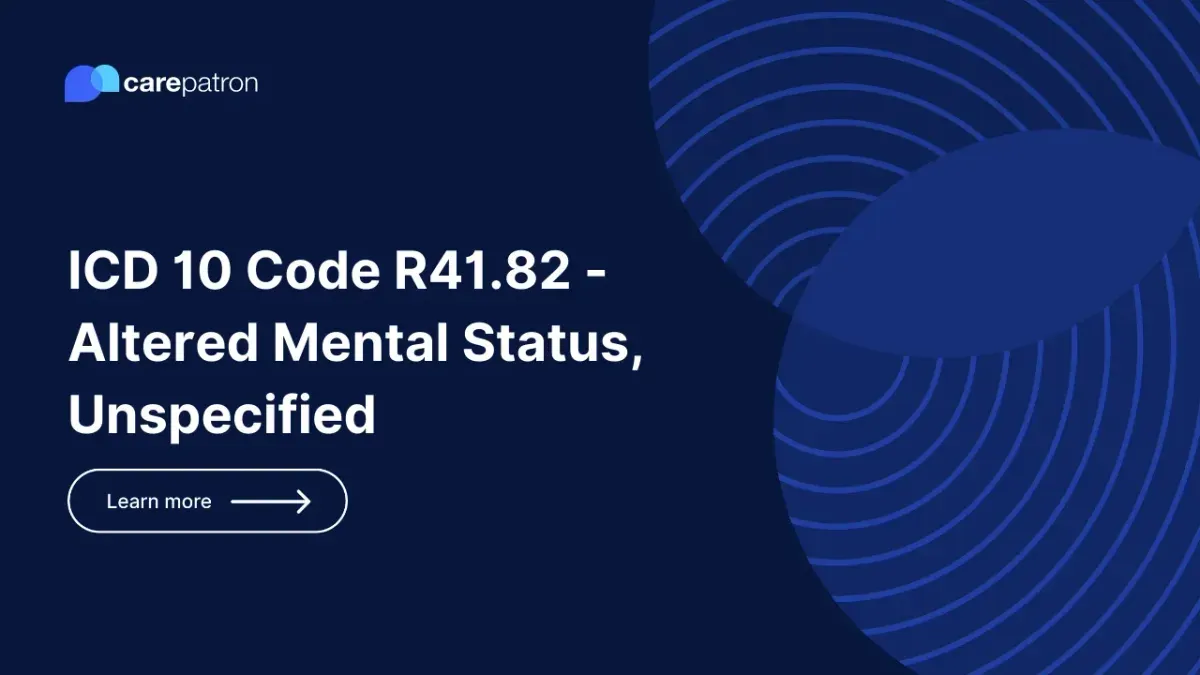
R41.82 – Altered mental status, unspecified
Learn more about the ICD code R41.82 for altered mental status, unspecified, and how to use this code.
Use Code
Commonly asked questions
An altered mental status occurs when a change in a person's cognitive function, alertness, or attention causes manifestations like changes in speech/behavior, disorientation, confusion, etc.
It depends on the type or severity. It can last hours or days, especially when it's acute, or months and years for chronic.
It can be cured, especially if the cause can be cured, such as infection or dehydration.
EHR and practice management software
Get started for free
*No credit card required
Free
$0/usd
Unlimited clients
Telehealth
1GB of storage
Client portal text
Automated billing and online payments
